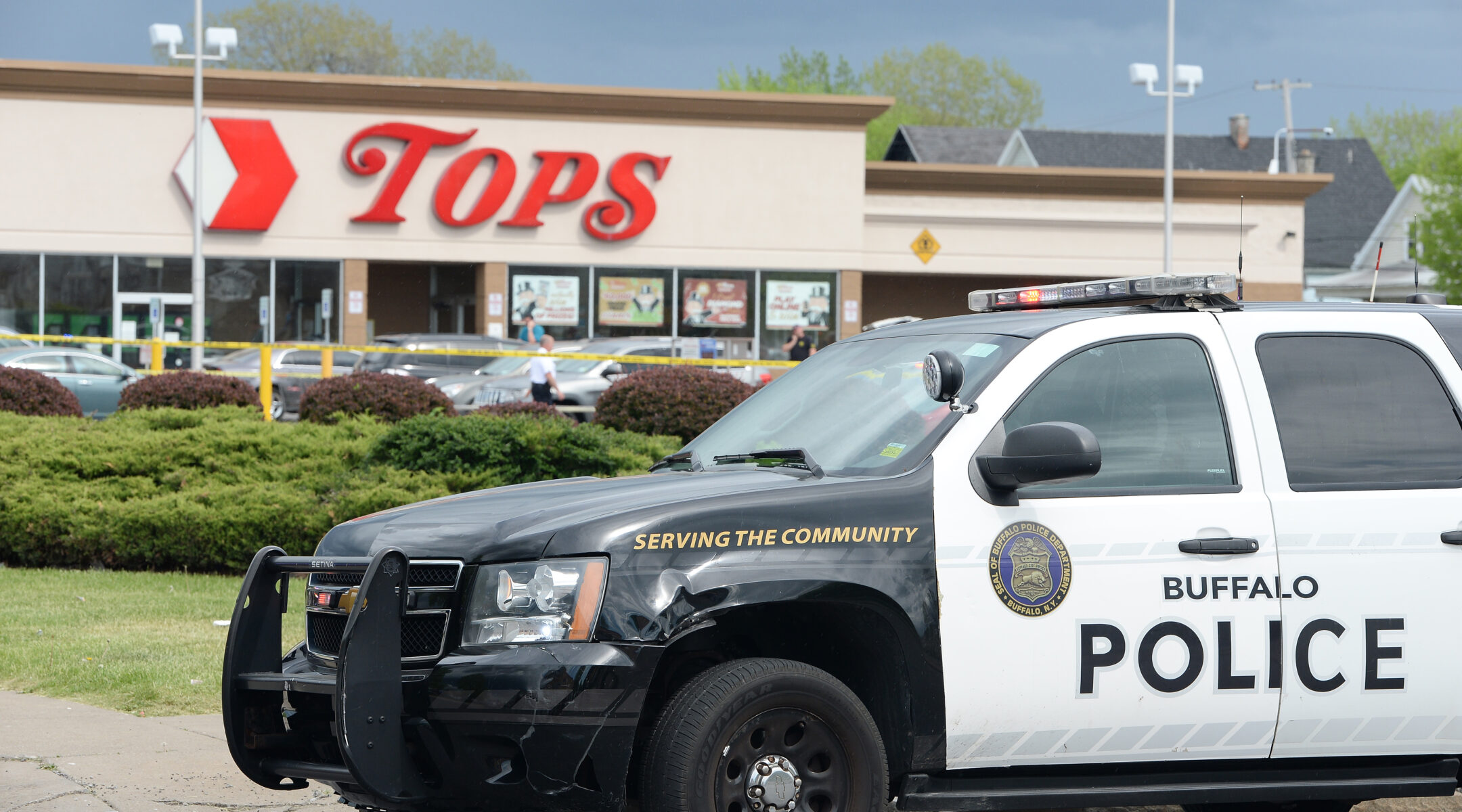(JTA) — The attack on the Tops Friendly Market on Buffalo’s Jefferson Avenue last May 14 shook Western New York to the core. In the span of less than 10 minutes, an 18-year-old wielding an AK-47 killed seven and injured three Black people.
The victims were teachers, caretakers, activists, new fathers, grandmothers, community leaders and all around good people. If not for the heroism of retired police officer Aaron Salter Jr., who lost his life in the attack, and the quick response of the Buffalo Police Department, the death toll could have been far higher.
For our Buffalo Jewish community, the attack was a call to action. In years past, the Jefferson Avenue corridor was the heart of the Jewish community. As Jews joined the white flight to the suburbs, it became a place where very few Jews ever frequented. The vigils held in the aftermath of the attack were the first time many Jews in our community had been back in the East Side of Buffalo in decades, if not more.
The gunman had specifically targeted the neighborhood, traveling three hours away from his home to “kill black people.” As the national media emphasized over and over, Buffalo is the sixth most segregated city in the country.
What does it mean that our white Jewish community is so removed from our Black and brown neighbors? A casual remark by a young Jewish parent a few weeks after the attack really struck home for me. He said the shooting at the school in Uvalde, Texas in June 2022 hit a lot closer to home than the shooting just down the road at Tops. As a parent of school age children he could relate to the suffering of the parents in Texas, not to the horror that occurred in Buffalo’s inner city. How could this be? Where did our community go wrong?
As the rabbinic consultant at our local Jewish Communal Relations Council, I take this disconnect very personally. I grew up in a predominantly Black part of West Philadelphia. Back in the 1980s, none of my classmates in my suburban Jewish day school would come to visit my house. They and their parents were afraid to come by, locking their car doors whenever they happened to drive by my home. Sadly, the divide has only grown worse.
Starting in 2017, our local Jewish federation has made a concerted effort to bridge this divide. We have held two missions to Israel, specifically geared to our local African-American leadership. We hired a racial justice coordinator, and are part of the initial cohort of the Jewish Federations of North America’s Jewish Equity and Diversity Initiative.
It has begun to make a difference. The Sunday after the May 14 attack, dozens of Jewish communal leaders showed up on the street outside Tops. Over the course of the past year, we have held racial healing circles, hosted museum tours of local Black artists, held a Freedom Seder and toured gardens on Buffalo’s predominately Black East Side. While we are very far from the shared society we aspire to, I can honestly say we are making strides toward closing the gap. Our community is much more open and accepting of Jews of color, and its members are beginning to accept our role in the systemic racism that is pervasive in our society.
This has been a very bad year for us in Western New York. Beyond the mass shooting at Tops, we had the stabbing of Salman Rushdie at the Chautauqua Institution, two major blizzards that left more than 40 people dead and the near death of Buffalo Bills player Damar Hamlin on the football field.
The one-year anniversary of the Tops attack will hit us hard, but it will not deter us from the work ahead. We, the Buffalo Jewish community, will be there in full force at the various events planned to mark the occasion, not as bystanders, but as upstanders. We are, after all, not only Jews, but Buffalonians.
As my friend, fellow recent traveler to Israel and poet laureate of Buffalo, Jillian Hanesworth, wrote in her poem “Choose Love”: “[W]hen evil tries to break us / we choose to stand tall/ We’ll shout loud and live louder / until the walls of hate fall / because justice can’t be limited / so we choose it for all… So, no matter what others say / no matter what they try to do / love, light, and each other / is what we will always choose.”
JTA has documented Jewish history in real-time for over a century. Keep our journalism strong by joining us in supporting independent, award-winning reporting.







